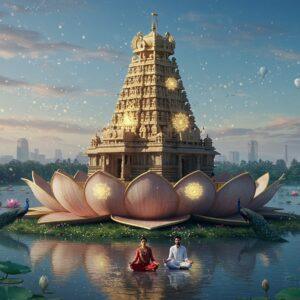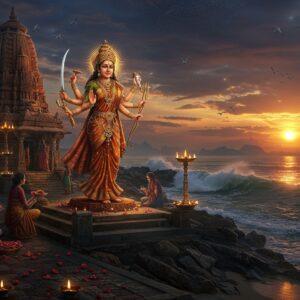The Ramayana, a cornerstone of Hindu mythology and a cherished epic, recounts the captivating tale of Prince Rama, his devoted wife Sita, and the unwavering loyalty of Hanuman. Delving into the authorship and origins of the Ramayana unveils profound insights into the rich tapestry of Indian cultural heritage.
Unveiling the Historical Tapestry
To truly grasp the authorship of the Ramayana, understanding its historical context is crucial. Estimated to have been composed between 500 BCE and 100 BCE, the epic emerged during a period when Vedic traditions and classical Hinduism flourished in ancient India. Oral tradition played a vital role in preserving and disseminating the epic, its influence extending to powerful dynasties like the Cholas and Guptas, who patronized its recitations and artistic representations.
Valmiki: The Maestro of the Ramayana
Sage Valmiki is traditionally revered as the author of the Ramayana. Legend portrays his transformation from a highwayman to a sage. Known as the Adi Kavi, or first poet, Valmiki composed the epic in Sanskrit, employing the Shloka verse form. The Ramayana unfolds across seven Kandas (books), each meticulously crafted to emphasize dharma (righteousness) and the exemplary qualities personified by Rama and Sita. Radha Krishna Bigraha
A Kaleidoscope of Adaptations: Regional and Cultural Variations
Mirroring India’s diverse cultural landscape, the Ramayana has inspired numerous regional adaptations. Noteworthy versions include:
- Ramcharitmanas by Tulsidas (Awadhi)
- Kamba Ramayanam by Kambar (Tamil)
- Krittivasi Ramayan by Krittibas Ojha (Bengali)
These adaptations infuse unique elements and local flavors while preserving the core narrative. The Ramayana’s influence extends beyond India’s borders, with adaptations flourishing in Southeast Asian countries like Indonesia, Thailand, and Cambodia. Premium Quality Original Coton Red Shalu Cloth
Literary and Philosophical Resonance
The Ramayana’s impact on Indian literature and philosophy is immeasurable. It has shaped the evolution of Sanskrit literature and influenced subsequent epic poetry. The epic’s philosophical dialogues, such as the discourse between Rama and Vasishta on duty and righteousness, offer profound insights. The Ramayana can also be interpreted allegorically as a spiritual odyssey, symbolizing the soul’s quest for liberation (moksha). XL Size Mayapuri Bhagwa Namavali
Cultural and Religious Significance: A Tapestry of Traditions
The Ramayana’s influence permeates culture and religion, playing a pivotal role in Hindu rituals, festivals, and performing arts. Celebrations like Ram Navami, commemorating Lord Rama’s birth, and Ramlila, enacted during Dussehra, draw inspiration from the epic. The Ramayana finds expression in classical dance forms like Bharatanatyam and Kathakali. Premium Quality Original Coton Whie Markin Cloth
Conclusion
The Ramayana stands as a timeless testament to Indian culture and spirituality. Valmiki’s profound contribution has secured his place in history as the Adi Kavi. His poetic rendition of Prince Rama’s journey continues to inspire generations. The epic’s themes of dharma, righteousness, and devotion resonate deeply within Hinduism and beyond, offering enduring guidance and wisdom.
FAQs
Who is credited with writing the Ramayana? The sage Valmiki is considered the author of the Ramayana.
When was the Ramayana composed? While the precise date remains uncertain, it is believed to have been written between 500 BCE and 100 BCE.
What is the central theme of the Ramayana? The Ramayana narrates the story of Prince Rama, his wife Sita, and his loyal companion Hanuman, focusing on Rama’s quest to rescue Sita from the clutches of Ravana.
What motivated Valmiki to write the Ramayana? Valmiki’s purpose was to showcase the ideals of dharma (righteousness) and to exemplify the virtues embodied by Lord Rama.
Are there other versions of the Ramayana? Yes, numerous versions exist, including adaptations in various Indian languages and in other countries like Thailand, Indonesia, and Cambodia. Laxmi Ganesh Ji Ki Murti Bengali Style
Dhana Laxmi Ganesh Ji Ki Murti
Maa Laxmi Lord Ganesha


